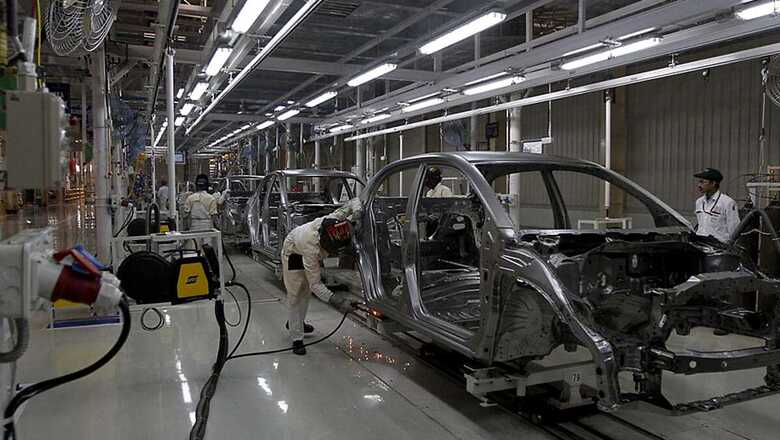
views
Rising tensions against Chinese products around the world could mean opportune times for India in the near future. With countries all over the globe banning Chinese apps and many more imposing myriad taxes on its products, India’s step towards ‘Aatamnirbhar Bharat’ could woo automakers around the world to ditch China and replace its glorified status of providing the cheapest products.
While India is already among the top countries to manufacture cars for both domestic and export markets, and a global leader in making two-wheelers, many automakers are still sourcing components essential for the final product from China, owing to cheaper cost. This in turn, reduces the cost of the final product.
In a recent parliamentary meeting held, auto industry bodies including SIAM (Society of Indian Automobile Manufacturers) and ACMA (The Automotive Components Manufacturers Association) were invited to discuss ways in which India could fish for the companies who are looking to move out of China.
The Parliamentary panel on Commerce has sought recommendations on manufacturing and opportunities in a post-COVID-19 scenario. Eyeing on such companies, needless to mention, can be a substantial push towards a much-needed recovery for the Indian manufacturing sector.
The talks to put a ban on auto components sourced from China intensified during the Indo-China tensions that escalated a couple of months back. However, not many automakers, especially the big ones are particularly keen about the move.
Border standoff has led to rising popular call for boycott of Chinese goods. Already India was eyeing bizs leaving China post the tariff war with the US. How feasible is business without China? We ask RC Bhargava, Chairman of @Maruti_Corp pic.twitter.com/Bj2toxuJpO— CNBC-TV18 (@CNBCTV18Live) June 15, 2020
Speaking to CNBC-TV18, Indian auto-giant Maruti Suzuki conveyed its resistance towards India’s move to increase tariffs on Chinese imports in the country. The company argued that Chinese imports were necessary for manufacturing vehicles and that vendors require it more than the manufacturers.
The move, according to the company, will impact Indian consumers and is not thought through. “The Prime Minister has made has made doing business in India ‘Infinitely Better’, but FDI is still not coming. India hasn’t been able to attract major manufacturing FDI over the last 70 years and policies in India have not been designed to promote competitiveness" the company said.
Speaking on the same note, home-grown two-wheeler manufacturer Bajaj conveyed its concern along the same lines stating that imports play a major role in strengthening the supply chain. According to the company, alloy wheels for motorcycles are major imports from China for two-wheelers and the reason to source it from China was because of more competitive pricing.
As per a report by the Standing Committee on Commerce on ‘Impact of Chinese Goods on Indian Industry’ in 2019 imports from China increased by USD 50 billion, exports increased by USD 2.5 billion. Trade with China constitutes more than 40% of India’s total trade deficit.
Also Watch:
Not only ICE-powered cars, but electric vehicles are considered to lose big in this fight between two nations. As India pushes for electric vehicles in the country, the development of such cars could see serious troubles with the recent decision. Close to 50 per cent of the cost of an electric vehicle is the cost of batteries. Out of the five largest battery manufacturers globally, two are Chinese in origin and operations. The other 3 have manufactured a considerable portion of their batteries in China or in association with Chinese counterparts.
While this brings into light just a tiny fraction of the problem, the blanket ban on Chinese products could have serious effects on the industry in the long-term.




















Comments
0 comment